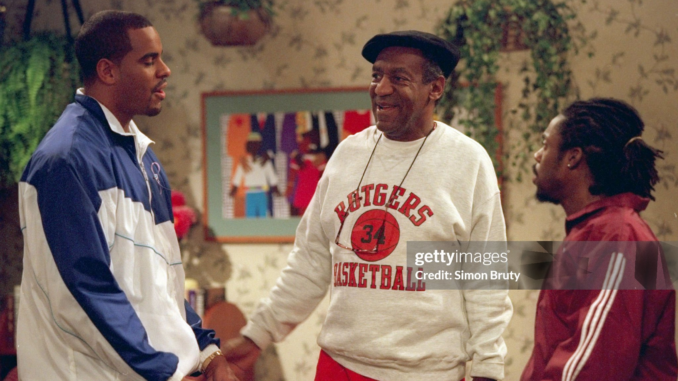
When The Cosby Show first aired in 1984, the Huxtable family became an immediate cultural phenomenon. The show wasn’t just a family sitcom; it was a groundbreaking portrayal of an African American family that resonated with millions of viewers across racial and cultural divides. For the first time on television, we saw a Black family that was not only successful but also loving, supportive, and normal—just like any other family.
Redefining African American Families on TV
Before The Cosby Show, African American families on television were often portrayed in one-dimensional, stereotypical roles. Black characters were frequently relegated to minor roles or cast as sidekicks, comic relief, or victims of social inequities. However, Bill Cosby’s vision for the show was to depict a Black family with the same complexity, humor, and depth as any other family on TV, regardless of race.
The Huxtables broke new ground by showing an upper-middle-class Black family in which the parents were both highly educated and successful in their professions. Dr. Heathcliff Huxtable, played by Bill Cosby, was an obstetrician, while his wife, Clair (Phylicia Rashad), was a lawyer. This portrayal of two strong, professional parents in a stable, loving marriage sent a powerful message to audiences about Black excellence.
The Huxtable Children: A New Generation of TV Youth
The children of the Huxtable family also represented a departure from the typical portrayals of Black youth on TV. The five Huxtable kids—Sondra, Denise, Theo, Vanessa, and Rudy—were not only well-rounded and distinct in personality, but they also faced relatable challenges. Whether it was Theo grappling with dyslexia or Denise seeking her identity in college, the show tackled topics that were relevant to all viewers.
Unlike many other TV families at the time, the Huxtables were not defined by their race, but by their universal human experiences. This shift allowed The Cosby Show to connect with a broad audience. People from all walks of life saw something familiar in the Huxtables—whether it was their love for one another, their struggles, or their dreams.
The Huxtables as Role Models
One of the most powerful aspects of The Cosby Show was its ability to offer viewers role models, both on and off screen. The Huxtables were not just a perfect family—they were a real family, one that faced everyday problems but always worked through them with love, humor, and respect. Dr. Huxtable was a fun-loving father who was never afraid to be goofy, but he was also wise and responsible when it mattered. Clair, meanwhile, was a strong, independent woman who balanced her professional life with her family responsibilities.
Together, they modeled a partnership that was rooted in equality and mutual respect. The show’s depiction of a strong, successful marriage, especially within the context of an African American family, was rare at the time and left a lasting impression on viewers.
Changing Perceptions of African American Success
The Cosby Show helped to shift perceptions of African Americans in popular culture. It sent a clear message that success was attainable for all people, regardless of their race. By showcasing a family with both professional and personal success, the show inspired viewers to pursue their own dreams, whatever those might be.
The Huxtables were not defined by their race or their struggles; they were defined by their love, ambition, and commitment to each other. This portrayal was empowering, especially for Black viewers who had not seen such positive depictions of their families in the media before.
The Huxtables’ Enduring Legacy
Decades after The Cosby Show first aired, the impact of the Huxtables is still felt in popular culture. The show remains a touchstone for TV portrayals of African American families, and its influence can be seen in subsequent shows like The Fresh Prince of Bel-Air, Black-ish, and even A Different World, the spin-off series that focused on Denise Huxtable’s college life.
In addition to paving the way for more diverse depictions of Black families, The Cosby Show also reshaped the broader landscape of television, proving that family-centered stories could resonate with a wide audience. Today, the Huxtables remain a symbol of love, success, and the importance of family—a legacy that continues to inspire viewers around the world.
